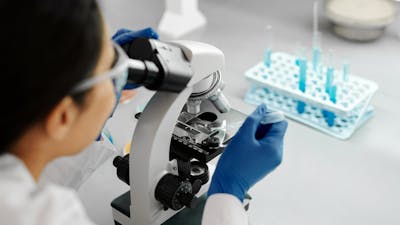Gameto is using the Wyss’ ovaroid technology to solve problems in women’s health, starting with infertility.
The Problem
Infertility is a growing problem across the world. 25% of couples in developing countries struggle with infertility, and about 48.5 million couples worldwide experience difficulty conceiving children. Treatments for infertility like in vitro fertilization (IVF) are becoming increasingly popular – about four million babies who were conceived using IVF are born in the US every year. But IVF is very expensive, traumatic for a woman’s body, and is not guaranteed to work. It can cost up to $25,000 for a single cycle, and multiple cycles are often needed for a successful pregnancy. About half of the cost of the procedure is due to the drugs that a woman must inject into herself daily for over a week to stimulate her eggs to mature for retrieval. In addition to dealing with side effects like pain, bloating, constipation, cramps, nausea, and mood swings caused by the drugs, women run the risk of developing ovarian hyperstimulation syndrome, which can be fatal. And finally, any eggs that are retrieved for IVF that are not fully mature are simply thrown away, further reducing a woman’s store of eggs and her chances of conceiving.
Our Solution

To address these myriad problems, researchers in the lab of Core Faculty member George Church, Ph.D. have created a fully human ovarian organoid (ovaroid) that can be grown in the lab in less than a week and replicates many of the critical functions of the human ovary. The ovaroids are created by using transcription factors that induce certain gene expression patterns in human stem cells. This causes them to differentiate into granulosa cells, one of the major cell types present in the ovary that supports egg cell growth and maturation by producing estrogen, progesterone and other hormones. These ovaroids spontaneously formed follicle-like structures in vitro and secreted and responded to multiple female reproductive hormones. They also supported the differentiation of human primordial germ cell-like cells (hPGCLCs) into germ cells, starting them on the developmental path toward becoming eggs.
Product Journey
Christian Kramme and Pranam Chatterjee were graduate students at Harvard and MIT, respectively, when they were introduced by Church in 2018. Both were interested in taking on the challenge of generating human eggs from skin cells in vitro, and had very complementary skill sets: Kramme is an expert in “wet lab” biological research, while Chatterjee excels at computational modeling. They quickly got to work, Chatterjee using artificial intelligence tools to predict transcription factors that could nudge stem cells to develop into egg cells and Kramme doing experiments in the lab to see which of those predictions came true.
But as their work continued, they realized that in order for an egg to successfully develop in vitro, it was crucial to provide it with its native support environment, as egg cells have very limited functionality and rely on the surrounding ovary to regulate their metabolism and development. In 2020 Merrick Pierson Smela, who had spent his master’s degree working on germ cell development, joined the Church lab as a Ph.D. student, and the team had the manpower needed to generate both germ cells and support cells, and put them together to form a functional ovarian organoid in the lab.
This research was supported by a sponsored research agreement with Gameto, a biotechnology company interested in developing therapies to improve the female reproductive journey. Based on studies in which the team demonstrated that their in vitro human ovary model composed of granulosa cells was able to successfully support human egg cell maturation, Gameto licensed the technology from the Wyss Institute in 2022. Chatterjee joined the company’s Scientific Advisory Board and Kramme joined as the VP of Cellular Engineering. A paper describing their technology was published in eLife in early 2023.
Impact
Gameto is applying the Wyss’ ovarian support cells to address infertility by offering a safer, more cost-effective method of maturing female eggs for IVF. Rather than forcing a woman’s eggs to fully mature simultaneously in her ovaries using high doses of drugs, their method would require only a low dose to start the maturation process. The immature eggs would then be retrieved and incubated within the ovarian support cells in vitro, allowing all of them to fully mature and maximizing the number of usable eggs a woman has available for IVF. This method is also less expensive, as a much lower dose of the stimulating drugs is required and more usable eggs could be retrieved, potentially reducing the number of IVF rounds required.
The company raised a successful Series A funding round as well as additional funding that totaled $40 million in 2022 after demonstrating that their ovarian support cells can successfully mature human immature egg cells discarded from IVF treatment facilities, and have initiated preclinical trials in the US and Europe to minimally stimulate female patients’ eggs before retrieval and in vitro incubation.
Already approved by regulators in six countries, in 2024, Gameto announced the first-ever live birth using their Fertio proceedure that matures eggs outside of the body as part of minimal hormonal stimulation cycles for in vitro fertilization and egg freezing. “By overcoming the major challenges of conventional IVF, such as long treatment cycles, significant side effects, and the emotional and physical strain, Fertilo provides a potentially faster, safer, and more accessible solution for families. This milestone marks a turning point in reproductive health and highlights the first application of iPSC technology in IVF and the immense potential of our technology,” said Dr. Dina Radenkovic, CEO and co-founder of Gameto.
I am profoundly grateful to the Pranor Clinic (in Peru) and the Gameto team for their care and dedication in making my dream of having a family a reality.”
Gameto is preparing for Phase 3 clinical trials in the United States, which they anticipate beginning in 2025 ane will lead to eventual approval from the FDA.
